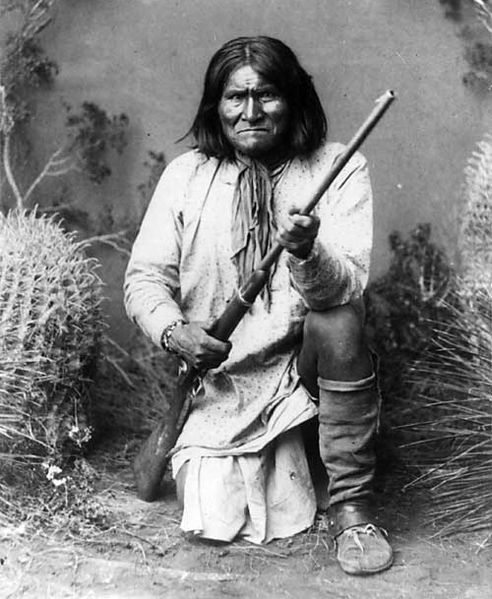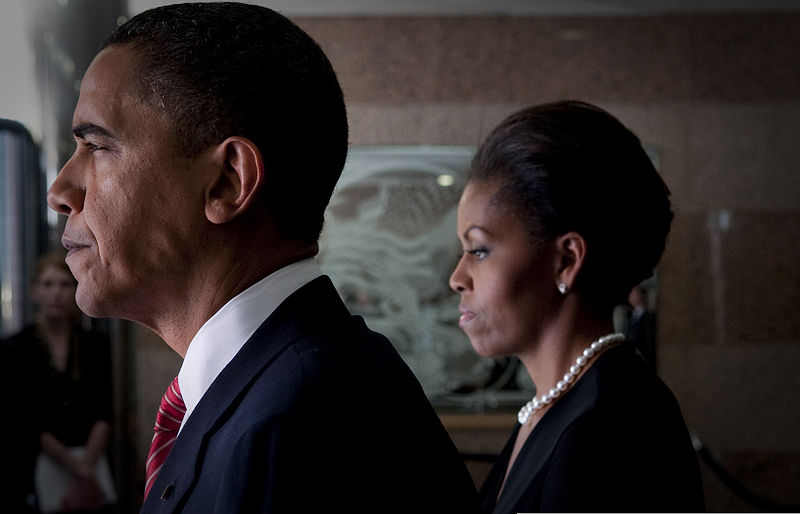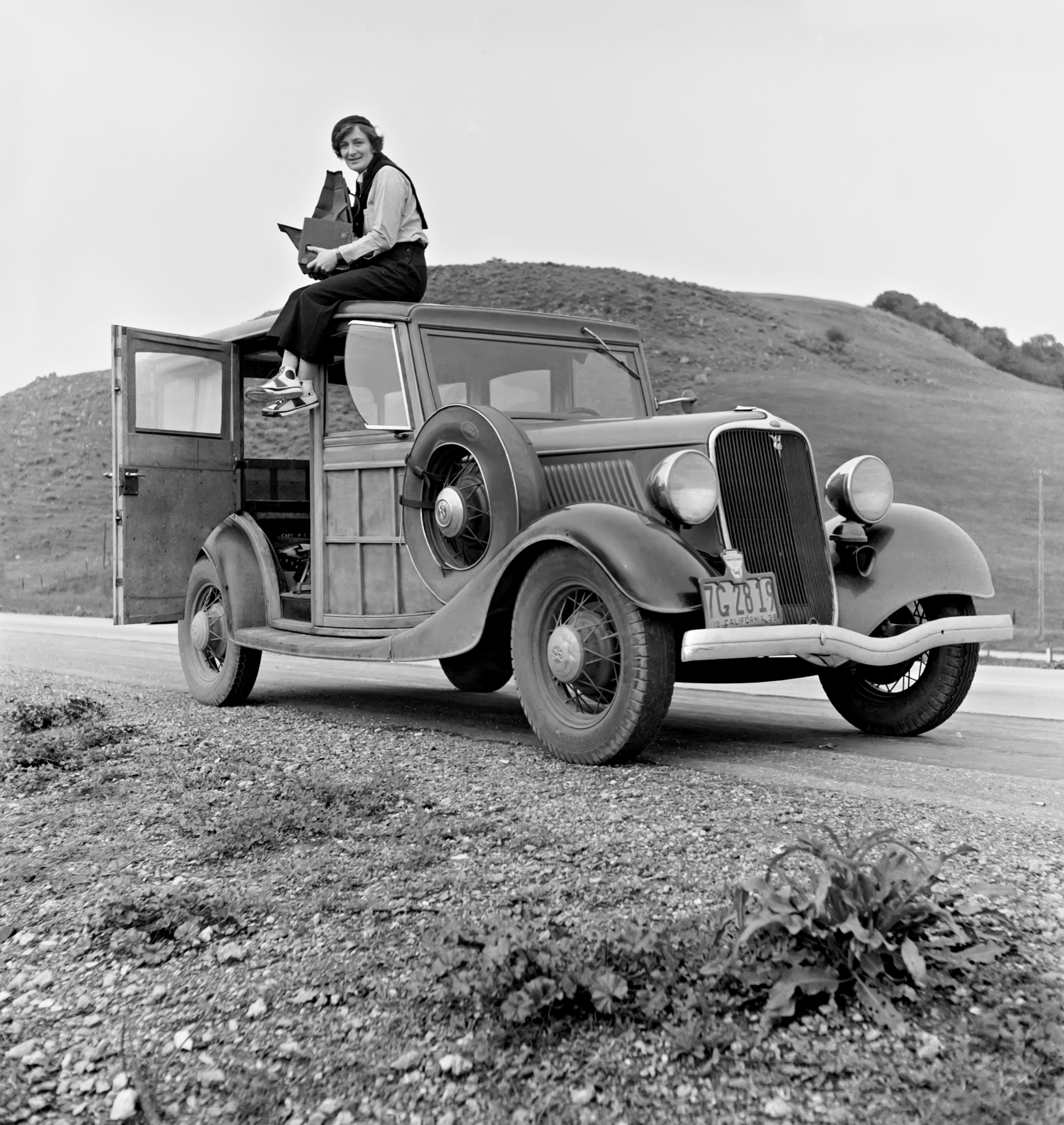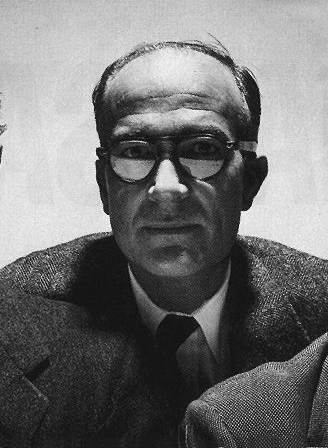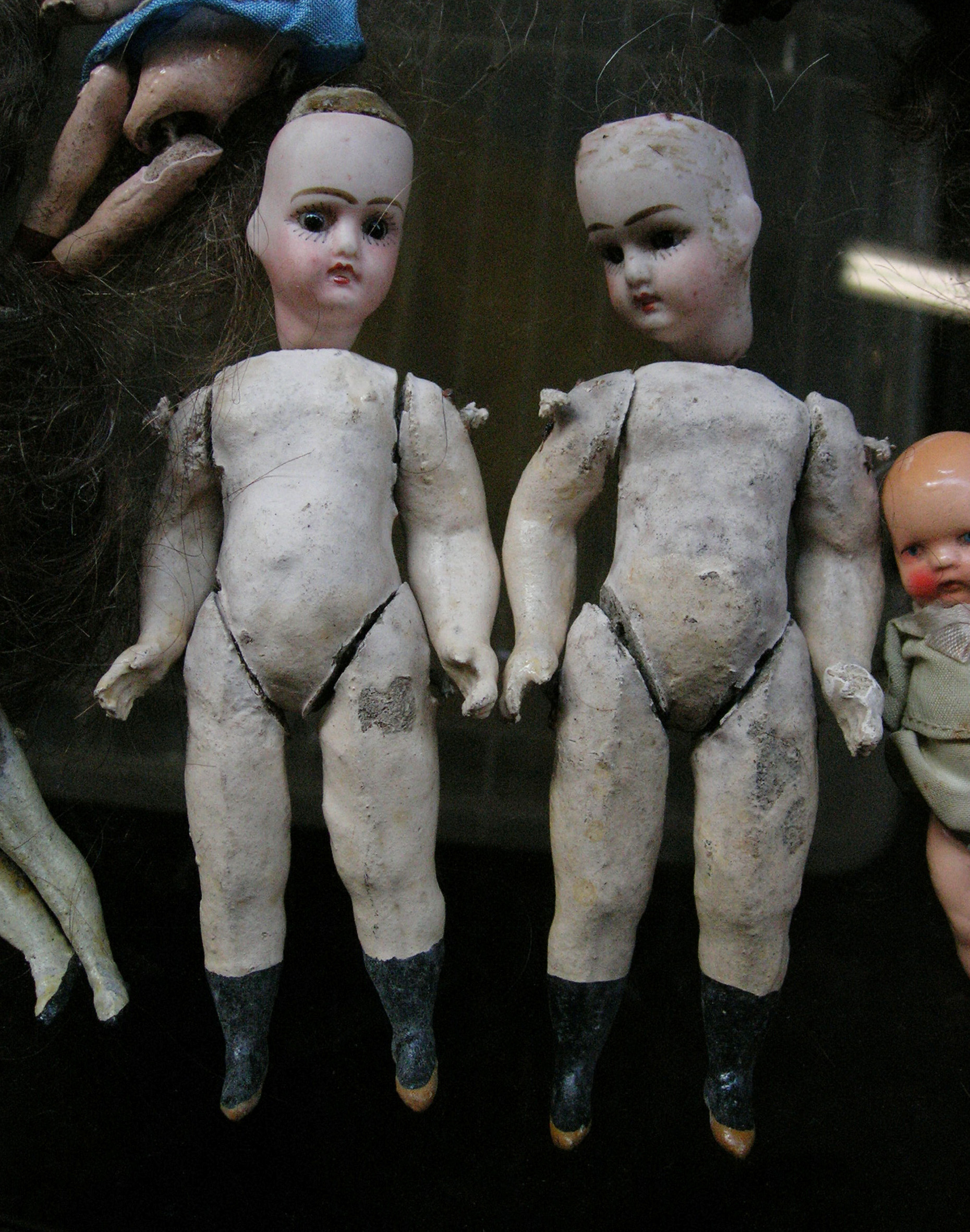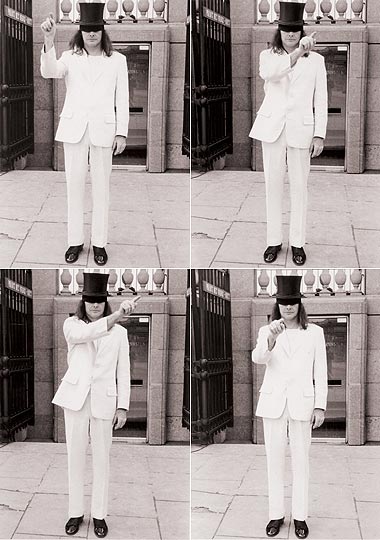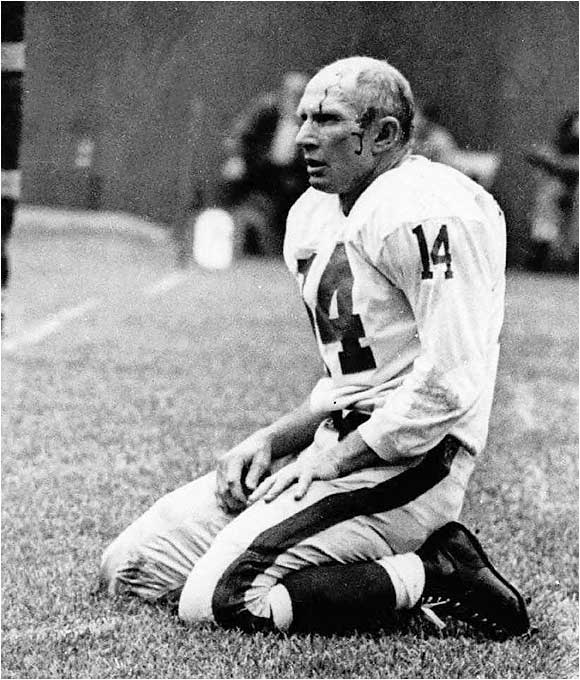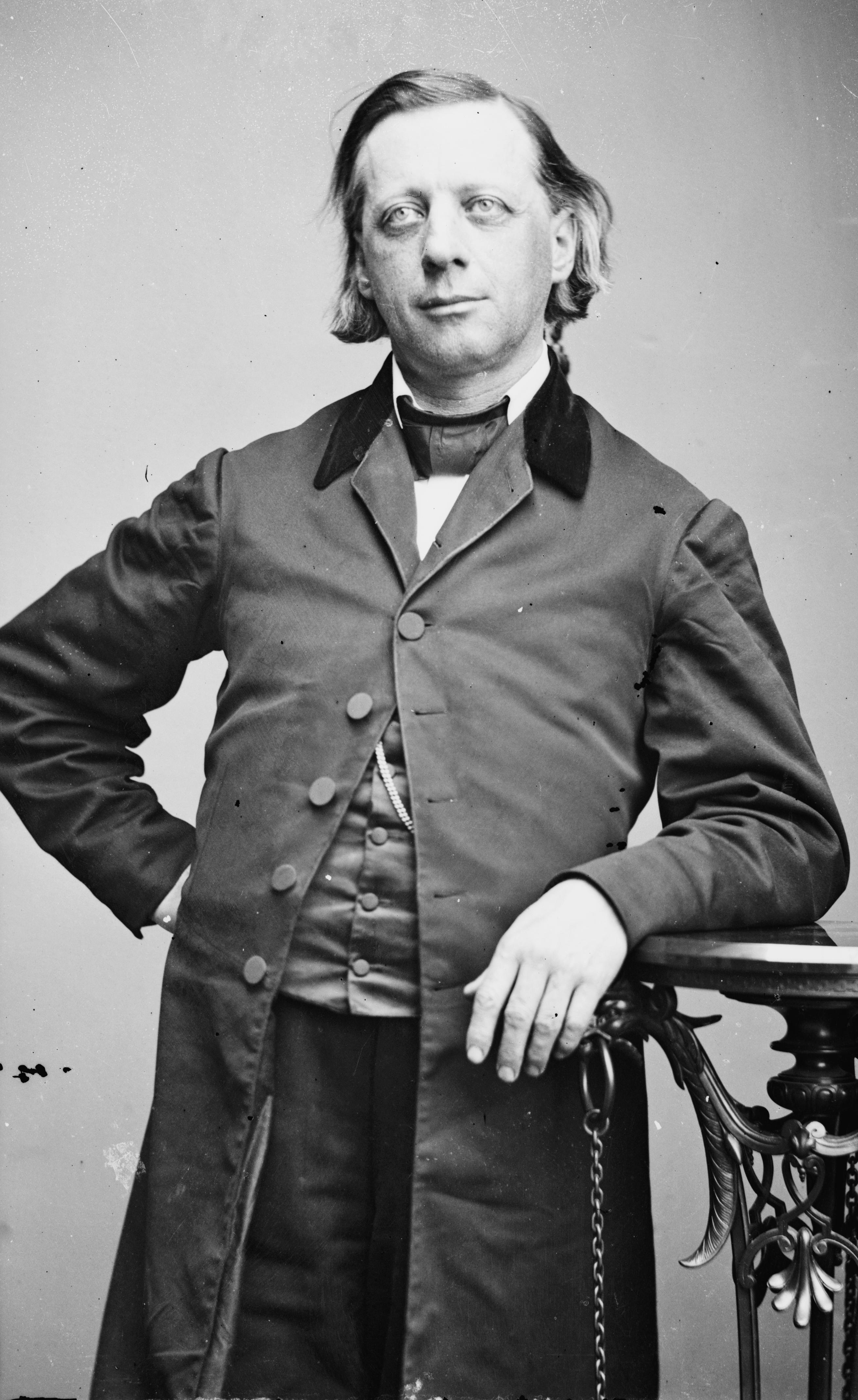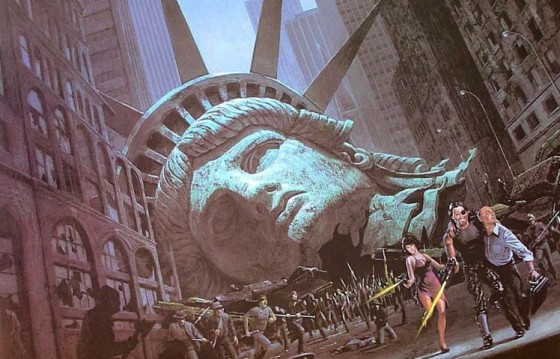Because of some scurrilous remarks he made (including in this 1963 video), Malcolm X never got the recognition he deserved in mainstream culture. He had a brilliant mind and cut through all the bullcrap, and it’s still painful that one of our best and brightest sons lived in a situation that forced him to turn against his country. Shame on all these well-heeled reporters for giving him such a difficult time over his name change. Shame also on all the journalists who kept referring to Muhammad Ali as “Cassius Clay” after his own name change. When people have had their history stolen from them, they have the every right to remake their present and future.
You are currently browsing the yearly archive for 2012.
Tags: Malcolm X
Some search-engine keyphrases bringing traffic to Afflictor this week:
- An idea for baseball’s new playoff system.
- About the backlash to Jodi Kantor’s book.
- Old Print Articles: Millionaire hates wife, kills self (1893) + Lumberjacks eating buckets of ants (1889).
- Classic Photographs: Henry Ward Beecher At Slavery’s End (1865) + Dorothea Lange, Seated Atop A Ford (1936).
- Featured Videos: William F. Buckley talks to Eudora Welty and Walker Percy (1972), William Shockley (1974) + Audio adaptation of The Medium Is the Message (1960s) + Schaefer Beer ad featuring Moog synthesizer (1970s) + TV introduction to the Moog synthesizer (1969) + Short movie about the Houston Astrodome (1960s) + Footage of Buffalo Bill Cody (1917) + Consumer electronics begin shrinking in earnest (1985) + Photographer William Eggleston in a Cat Power video + Crawling Japanese salaryman robot + Playing Maze War on the Xerox Alto (1970s) + HAL and Siri refuse to open the pod bay doors + What’s My Line? featuring Brian Epstein (1964), Charles Laughton.
- Recently Posted on NYC’s Craigslist: Good news for dogs and cats + Would you like to have a child with poor grammar? + It is likely not pubic hair + It is in the Lotus position that I most consider murder + Ever been drunk?
- Stephen Hawking’s personal technician shares trade secrets.
- Jonah Lehrer examines football’s concussion problem.
- Laurie Anderson used to wrestle Andy Kaufman.
- Max Chafkin provides a smart oral history of the OWS movement.
- The clearest sign yet that Obama is done playinjg nice.
- A Civil War Colonel created the gossip page blind item in 1893.
- Have all our fears about technology already been realized?
- Yet another victim of the recession–street lamps.
- Mike Daisey visits the controversial Foxconn factories.
- U.K. thieves don’t bother stealing CDs and DVDs.
- Vinod Khosla thinks algorithms can supplant institutions.
- How literary agent John Brockman created his heady website Edge.
- Leftist radical Judith Clark has become a model prisoner.
- The Catholic Church’s reaction to Salman Rushdie’s death sentence.
- Cat Stevens was a conflicted rock star in 1973.
- An explanation of how brains recignize faces.
- This week’s Afflictor keyphrase searches.
REAL and AUTHENTIC Geronimo Hair!!! – $200 (Chelsea)
This is an ACTUAL piece of hair from the Great Warrior himself. I have certification letter and other documents on this item this I received when I purchased it. It is a Rare and Unique Item to own. I hate to part with it, but due to divorce is a must.
Comes unframed, in extra thick plastic protective sheet. Actual hair is sealed in a protective case as seen in photo and is approximately 1/16″ long…
Reduced for quick sale! Was $1000.
This classic picture taken by Rondal Partridge profiles genius photographer Dorothea Lange in California in 1936, the same year she snapped her most famous image, “Migrant Mother.” Posessing the eye of a painter and the sensibilities of a documentarian, Lange captured the rough-hewn life of Americans during the Great Depression, particularly that of the Okies. Born in Hoboken, New Jersey, she eventually settled in San Francisco, where she opened a studio. Lange passed away there in 1965. From her obituary in the New York Times:
“Her portrait ‘Migrant Mother,’ is in the Library of Congress. In 1960 it was selected by a University of Missouri panel as one of the 50 most memorable pictures of the last 50 years.
She enjoyed telling newcomers how to improve their work. ‘Pick a theme and work it to exhaustion,’ she advised them. ‘Then pick another, or handle several themes at a time. Let yourself loose on a theme. It is the only way to make the most of it.'”
Tags: Dorothea Lange
A description of William Shockley from Tom Wolfe’s 1983 Esquire article about Robert Noyce, who worked for a time for the Bell Labs genius and boss from hell, whose erratic nature alienated pretty much everyone, and that was before he dirtied himself with nonsense eugenics theories:
The first months on Shockley’s Ph.D. production line were exhilarating. It wasn’t really a production line at all. Everything at this stage was research. Every day a dozen young Ph.D.’s came to the shed at eight in the morning and began heating germanium and silicon, another common element, in kilns to temperatures ranging from 1,472 to 2,552 degrees Fahrenheit. They wore white lab coats, goggles, and work gloves. When they opened the kiln doors weird streaks of orange and white light went across their faces, and they put in the germanium or the silicon, along with specks of aluminum, phosphorus, boron. and arsenic. Contaminating the germanium or silicon with the aluminum, phosphorus, boron, and arsenic was called doping. Then they lowered a small mechanical column into the goo so that crystals formed on the bottom of the column, and they pulled the crystal out and tried to get a grip on it with tweezers, and put it under microscopes and cut it with diamond cutters, among other things, into minute slices, wafers, chips; there were no names in electronics for these tiny forms. The kilns cooked and bubbled away, the doors opened, the pale apricot light streaked over the goggles, the tweezers and diamond cutters flashed, the white coats flapped, the Ph. D.’s squinted through their microscopes, and Shockley moved between the tables conducting the arcane symphony.
In pensive moments Shockley looked very much the scholar, with his roundish face, his roundish eyeglasses, and his receding hairline; but Shockley was not a man locked in the pensive mode. He was an enthusiast, a raconteur, and a showman. At the outset his very personality was enough to keep everyone swept up in the great adventure. When he lectured, as he often did at colleges and before professional groups, he would walk up to the lectern and thank the master of ceremonies and say that the only more flattering introduction he had ever received was one he gave himself one night when the emcee didn’t show up, whereupon – bango!- a bouquet of red roses would pop up in his hand. Or he would walk up to the lectern and say that tonight he was getting into a hot subject, whereupon he would open up a book and – whump! -a puff of smoke would rise up out of the pages.
Shockley was famous for his homely but shrewd examples. One day a student confessed to being puzzled by the concept of amplification, which was one of the prime functions of the transistor. Shockley told him: ‘If you take a bale of hay and tie it to the tail of a mule and then strike a match and set the bale of hay on fire, and if you then compare the energy expended shortly thereafter by the mule with the energy expended by yourself in the striking of the match, you will understand the concept of amplification.’
On November 1,1956, Shockley arrived at the shed on South San Antonio Road beaming. Early that morning he had received a telephone call informing him that he had won the Nobel Prize for physics for the invention of the transistor; or, rather, that he was co-winner, along with John Bardeen and Walter Brattain. Shockley closed up shop and took everybody to a restaurant called Dinah’s Shack over on El Camino Real, the road to San Francisco that had become Palo Alto’s commercial strip. He treated his Ph. D. production line and all the other employees to a champagne breakfast. It seemed that Shockley’s father was a mining engineer who spent years out on remote durango terrain, in Nevada, Manchuria and all over the world. Shockley’s mother was like Noyce’s. She was an intelligent woman with a commanding will. The Shockleys were Unitarians, the Unitarian Church being an offshoot of the Congregational. Shockley Sr. was twenty years older than Shockley’s mother and died when Shockley was seventeen. Shockley’s mother was determined that her son would someday ‘set the world on fire,’ as she once put it. And now he had done it. Shockley lifted a glass of champagne in Dinah’s Shack, and it was as if it were a toast back across a lot of hardwrought durango grit Octagon Soap sagebrush Dissenting Protestant years to his father’s memory and his mother’s determination.
That had been a great day at Shockley Semiconductor Laboratory. There weren’t many more. Shockley was magnetic, he was a genius, and he was a great research director–the best, in fact. His forte was breaking a problem down to first principles. With a few words and a few lines on a piece of paper he aimed any experiment in the right direction. When it came to comprehending the young engineers on his Ph.D. production line, however, he was not so terrific.
It never seemed to occur to Shockley that his twelve highly educated elves just might happen to view themselves the same way he had always viewed himself: which is to say, as young geniuses capable of the sort of inventions Nobel Prizes were given for. One day Noyce came to Shockley with some new results he had found in the laboratory. Shockley picked up the telephone and called some former colleagues at Bell Labs to see if they sounded right. Shockley never even realized that Noyce had gone away from his desk seething. Then there was the business of the new management techniques. Now that he was an entrepreneur, Shockley came up with some new ways to run a company. Each one seemed to irritate the elves more than the one before. For a start, Shockley published their salaries. He posted them on a bulletin board. That way there would be no secrets. Then he started having the employees rate one another on a regular basis. These were so-called peer ratings, a device sometimes used in the military and seldom appreciated even there. Everybody regarded peer ratings as nothing more than popularity contests. But the real turning point was the lie detector. Shockley was convinced that someone in the shed was sabotaging the project. The work was running into inexplicable delays, but the money was running out on schedule. So he insisted that one employee roll up his sleeve and bare his chest and let the electrodes be attached and submit to a polygraph examination. No saboteur was ever found.•
A 1974 Firing Line with Shockley, who at this point was sadly tarnishing his reputation with a second act as a quack trying to link race, class and IQ, with African-Americans not faring too well in his theories nor anyone who was an unskilled laborer.
Tags: Robert Noyce, Tom Wolfe, William F. Buckley, William Shockley
One of the last spooky echoes of the violent elements of the ’60s Radical Left was the armed robbery of a Brinks truck in suburban New York in 1981. The crime went from bad to worse, with two police officers being murdered. Judith Clark, a 31-year-old veteran political activist who was the getaway driver, was arrested and has remained in prison ever since, despite transforming herself from violent activist to model prisoner. I think it’s great when a prisoner reforms, but it’s difficult for me to accept that she should be released considering the nature of the crime. In all fairness, many people, including Clark’s former warden, disagree. The opening of Tom Robbins’ new article about the longtime prisoner in the New York Times Magazine:
“On Oct. 20, 1981, a band of militant zealots armed with automatic weapons tried to rob a Brink’s truck in a shopping mall in Nanuet in Rockland County, N.Y. Before it was over, two armored-car guards were shot and two police officers — one black and one white — were gunned down at a roadblock. The crime was one of the last spasms of ’60s-style, left-wing violence. To the militants, it was an ‘expropriation’ for something they called the Republic of New Afrika, a place that existed mainly in their fevered dreams.
Judith Clark was one of four people arrested that day for armed robbery and murder. She was 31, a veteran of the white left who traveled the radical arc from student protest to the Weathermen to the fringes beyond. A new single mother, she kissed her infant daughter goodbye that morning, promising to be home soon.
No one ever accused Clark of holding or firing a gun that deadly afternoon. But she was there, a willing participant, at the wheel of a tan Honda getaway car. Over the next two years while she awaited trial in jail, Clark became a fiercer warrior than she was on the day of the robbery. During court hearings, she told the judge she was a ‘freedom fighter’ who didn’t recognize the right of imperialist courts to try her. She called court officers ‘fascist dogs!’ when they clashed with her supporters.
Her better-known co-defendant, Kathy Boudin, arrested at the scene of the shootings after having been a fugitive since a 1970 bomb blast in a Greenwich Village town house killed three of her Weather Underground comrades, sat mutely beside her. At trial, Clark and two other defendants — David Gilbert, a Weather Underground member, and Kuwasi Balagoon, a former Black Panther — boycotted the courtroom, listening to the piped-in testimony from their basement cells. The defendants insisted on representing themselves; no one cross-examined witnesses on their behalf. When Clark appeared in court to make a closing argument, she merely confirmed her guilt. ‘Revolutionary violence is necessary, and it is a liberating force,’ she told the jury.”
Tags: Judith Clark, Tom Robbins
How cool. A clip of William F. Buckley with great Southern writers Walker Percy and Eudora Welty in 1972. I think my favorite Welty short story is “Music From Spain,” which takes place not in the South but in San Francisco.
From a Paris Review Q&A with Welty:
“INTERVIEWER
‘Music from Spain’ takes place in San Francisco.
WELTY
That’s using impression of place. I was in San Francisco for only three or four months—that’s seeing it in a flash. That story was all a response to a place, an act of love at first sight. It’s written from the point of view of the stranger, of course—the only way to write about a strange place. On the other hand, I couldn’t write a story laid in New York, where I’ve come so many times—because it’s both familiar and unfamiliar, a no-man’s-land.”
The opening of a Techcrunch article by Vinod Khosla about his extreme faith in the efficacy of algorithms, believing they can even supplant our most basic institutions:
“I was asked about a year ago at a talk about energy what I was doing about the other large social problems, namely health care and education. Surprised, I flippantly responded that the best solution was to get rid of doctors and teachers and let your computers do the work, 24/7 and with consistent quality.
Later, I got to cogitating about what I had said and why, and how embarrassingly wrong that might be. But the more I think about it the more I feel my gut reaction was probably right. The beginnings of ‘Doctor Algorithm’ or Dr. A for short, most likely (and that does not mean ‘certainly’ or ‘maybe’) will be much criticized. We’ll see all sorts of press wisdom decrying ‘they don’t work’ or ‘look at all the silly things they come up with.’ But Dr A. will get better and better and will go from providing ‘bionic assistance’ to second opinions to assisting doctors to providing first opinions and as referral computers (with complete and accurate synopses and all possible hypotheses of the hardest cases) to the best 20% of the human breed doctors. And who knows what will happen beyond that?” (Thanks Browser.)
••••••••••
“Maybe the way to innovate schools is to eliminate schools”:
Tags: Vinod Khosla
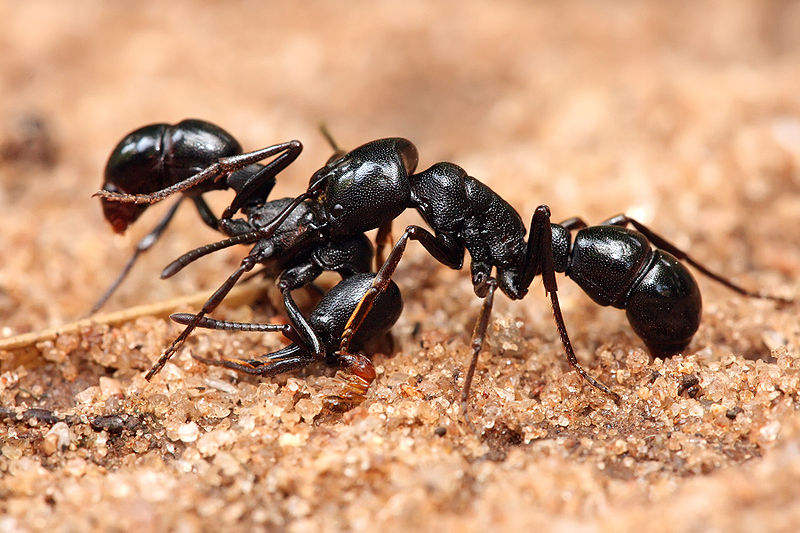
"Ants are said by those who have tasted them to have a peculiarly agreeable, strongly acid flavor." (Image bt Muhammad Mahdi Karim.)
Dietary habits vary based on geography and according to an article in the February 11, 1889 edition of the Brooklyn Daily Eagle, which ran originally in the Pittsburgh Dispatch, Maine lumberjacks were partial to buckets of ants. The story in full:
“Should a Maine lumberman find a stump or rotten log with thousands of big black ants in it he scoops the torpid insects from their Winter domicile and fills his dinner pail with them. When he gets back to his camp at night he sets the pail in a cool place until his supper is ready, then brings it forth, and, while helping himself to pork and beans, helps himself also to ants. There is no accounting for tastes, and he esteems a handful of ants a very choice morsel.
Ants are said by those who have tasted them to have a peculiarly agreeable, strongly acid flavor. The woodsmen, whose food consists largely of salted meat, baked beans and similarly hardy victuals, naturally have a craving for something sour. ‘Ants are the very best of pickles,’ said an old logger, who confessed to having devoured thousands of them. ‘They are clearly insects, and there is no reason why they should not be eaten, if one can get over a little squeamishness caused by the thought of taking such crawling things into the stomach. There is nothing repulsive about them, and when a man has once learned to eat the creatures as pickles he prefers them to any kind.’
Ants have at various times and in different countries been quite extensively used in medicine, and formic acid, which was first obtained by distilling the bodies of those insects but is now artificially prepared, is a well known and useful chemical product.
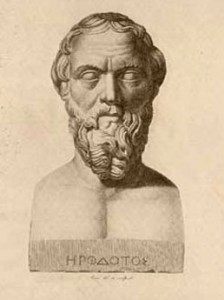
"Herodotus tells of ants that live in the desert of India, which are in size 'somewhat less than dogs, but larger than foxes.'"
Herodotus tells of ants that live in the desert of India, which are in size ‘somewhat less than dogs, but larger than foxes.’ These creatures, in heaping up the earth after the manner of common ants, were a very efficient aid to the Indian gold hunters. The sand they throw up being largely mixed with gold, the Indians were accustomed to go to the desert in the heat of the day, when the ants were under ground, load the sand into sacks, pile their sacks upon their camels and hasten from the spot as rapidly as possible. The ants, according to the historian, were not only the swiftest of animals, but were gifted with such a sense of smell that they immediately became aware of the presence of men in their territory, and unless the Indians got away while the ants were assembling to attack them not a man could escape.”
The first movie I can remember seeing as a child was a TV showing of The Hunchback of Notre Dame, starring Charles Laughton. Here he is in 1956 on What’s My Line?, when he was appearing on Broadway.
Quasimodo provides sanctuary:
Tags: Charles Laughton
From “The Man Who Runs the World’s Smartest Website,” an Observer piece about literary agent John Brockman and his heady site, Edge, which grew from an idea by the late artist James Lee Byars:
“In cyberspace, Brockman is best known for Edge.org, a site he founded as a continuation of what he describes as ‘a failed art experiment’ by his late friend, performance artist James Lee Byars. Byars believed, Brockman recalls, ‘that to arrive at a satisfactory plateau of knowledge it was pure folly to go to Widener Library at Harvard and read six million books. Instead, he planned to gather the 100 most brilliant minds in the world in a room, lock them in and have them ask one another the questions they’d been asking themselves. The expected result – in theory – was to be a synthesis of all thought.’ But it didn’t work out that way. Byars did identify his 100 most brilliant minds and phoned each of them. The result: 70 hung up on him.
Byars died in 1997, but Brockman persisted with his idea, or at any rate with the notion that it might be possible to do something analogous using the internet. And so Edge.org was born as a kind of high-octane online salon with Brockman as its editor and host. He describes it as ‘a conversation. We look for people whose creative work has expanded our notion of who and what we are. We encourage work on the cutting edge of the culture and the investigation of ideas that have not been generally exposed.’”
Tags: James Lee Byars, John Brockman
Ever seen a Ghost?
Have you ever had an encounter, or multiple encounters with a ghost?
If you have, and would like to talk about it, my partners and I are compiling research from people with firsthand encounters.
We are extremely interested in hearing what you have to say.
We’re not here to exploit either your personal experience or identity.
If you are up to it, email me with a schedule and we’ll find a time to meet in a place that everybody is comfortable with.
We are not looking for insane and whacky stories, we are looking for the truth.
For all my interest in Marshall McLuhan, I never realized until now that there was an experimental audio version of The Medium Is the Massage that was released by CBS Records in the late 1960s. It’s a pastiche that upends itself, by design. I bet Zappa knew it well.
Tags: Marshall McLuhan
A brief history of the blind item, a staple of gossip pages since 1891 which has only proliferated during the Internet Age, from an Awl piece by Carrie-May Siggins:
“Credit for the invention of the blind item is given to a man named Colonel William d’Alton Mann. After becoming a Civil War hero in the battle of Gettysburg, he made a fortune licensing an invention for an equipment-hauling rig to the US and Austrian armies. In 1891, his brother, who published the New York City society paper Town Topics, vanished after he discovered he was wanted on an obscenity charge. Mann, whose long white beard and shock of white hair made him a dead ringer for Santa, took over Town Topics and transformed it into one of the most notorious gossip rags ever published.
Colonel Mann’s written contribution to the paper was a column called ‘Saunterings,’ a sharp, sardonic weekly piece about the goings on in high society, much of which he witnessed himself. He often kept his musings nameless, as with this example from February 3, 1893:
‘High society has been treated to a sorry spectacle of inebriety during the last two weeks at balls and dinners, and I am glad to say that this shocking example, though unfortunately a woman, is not an American, but a specimen of British aristocracy. … If Great Britain is to send us such specimens of her boasted aristocracy, I would advise society to entertain in camera and with a bread and water diet.’
Although no one was named in these items, Colonel Mann devised an easily breakable code to help tip off readers. Flip over the piece of newsprint and directly on the other side of ‘Saunterings’ one would find a tepid write-up about an act of charity by a member of the Sykes family, or a barely news-worthy piece about William Vanderbilt. Blind item solved.”
Short old-school movie about the Houston Astrodome, the world’s first roofed, air-conditioned stadium, which opened in 1965. Even back then, there were luxury suites. Audio is patchy.
Before religious conversion, a name change, disgraceful comments about the fatwa declaring death to Salman Rushdie, a no-fly list with his new name (Yusuf Islam) on it and a couple of libel lawsuits, Cat Stevens was a wildly popular yet skittish rock star whose work suggested a burgeoning spirituality but could not predict the many permutations ahead. In 1973, as he was releasing his album Foreigner, Stevens was profiled by Paul Gambaccini in Rolling Stone. An excerpt:
“Stevens is a person who obeys his instincts. He went to Jamaica to record Foreigner not so much for studio facilities as ‘for sunshine. I couldn’t get it in England, and I didn’t want to go to America.’ He didn’t work with longtime producer Paul Samwell-Smith because, ‘I wanted an immediate feel to it. He is a great producer, but he is very clean, if a note is wrong he wants to fix it up. This time I wanted to do a certain part, I wanted to just play it, and let it be.’
Veteran musician Phil Upchurch was selected to play because, ‘I was listening to the radio and this long track was playing and it was just getting better and better and I wanted it to end so I could see who it was by and yet it just kept getting better. They said it was Phil Upchurch and I went out and bought an album. I knew from that that he was right to work with.’
‘Foreigner Suite,’ he said, was not a pre-planned opus. ‘It happened. I wrote fragments that came together and as they did I said, what’s happening here? And it turned out to be what I now consider to be not the many parts, but one song.
The only thing left to do was to title the work. Although the word never appears in the suite, ‘foreigner’ was chosen, because: ‘We’re all foreigners. Say to a foreigner that he’s a foreigner and he’ll say you’re a foreigner! We’re all foreigners here, in a wider sense. One hundred years from now I won’t be here, there’ll be nothing left of me, but the earth will still exist. People ask me, ‘Who is The Foreigner? Is it a guru? A person?’ It’s wider than any single person.”
••••••••••
The complete 18-minute “Foreigner Suite,” 1973:
“I’d try to phone Ayatollah Khomeini and tell him exactly where this man is”:
Tags: Cat Stevens, Paul Gambaccini, Yusuf Islam
HAL 9000 + Siri.
From “Not Worth Nicking,” a new article in the Economist about the evolving taste of U.K. thieves, who, unsurprisingly, shun old-school media goods in favor of portable computing products:
“Indeed, thefts of entertainment products like CDs and DVDs have collapsed in England and Wales, to the point that they are now taken in just 7% of all burglaries in which something is stolen (see chart). They are now targeted no more frequently than are toiletries and cigarettes
The reason is the falling value of physical media products. The average price of a CD album in Britain fell from £10.77 to £7.32 between 2001 and 2010, according to the BPI, a trade group—almost a halving, in real terms. And the dishonest get their music and films free, via the internet. DVDs are under pressure not just from piracy but also from video-on-demand services.
Computers, on the other hand, are both valuable and increasingly portable: they are now taken more commonly than anything except purses and wallets.”
The opening of “The Fragile Teenage Brain,” neuroscientist Jonah Lehrer’s devastating Grantland examination of football’s concussion problem, a plague not only on the NFL but also on high schoolers playing under the lights on Friday nights:
“If the sport of football ever dies, it will die from the outside in. It won’t be undone by a labor lockout or a broken business model — football owners know how to make money. Instead, the death will start with those furthest from the paychecks, the unpaid high school athletes playing on Friday nights. It will begin with nervous parents reading about brain trauma, with doctors warning about the physics of soft tissue smashing into hard bone, with coaches forced to bench stars for an entire season because of a single concussion. The stadiums will still be full on Sunday, the professionals will still play, the profits will continue. But the sport will be sick.
The sickness will be rooted in football’s tragic flaw, which is that it inflicts concussions on its players with devastating frequency.”
••••••••••
Colt McCoy gets concussion, returns to game two plays later:
Tags: Jonah Lehrer
This classic photograph of preacher, politician and fervent abolitionist Henry Ward Beecher was taken at some point between 1855 and 1865 by Mathew Brady’s studio. From an eyewitness account in the New York Times of a speech Ward delivered in Charleston, South Carolina, on April 17, 1865, less than three months after the 13th Amendment outlawed slavery, as countless former slaves who had been sold and sold again tried to reunite with family:
“Feeling was accumulating in the audience, and began to be heard in the low moaning and response, like the sound of the waves upon a distant shore; but when he spoke directly to the blacks before him, of their sufferings in the days gone by, and now of their release; of the loss of their children and of the return of so many, and exhorted them since God had done so much for them to wait with faith and patience for the remainder, and assured them that the morning was on the mountains and the day was at hand, they broke out all over the house in low ejaculations of praise and of thanksgiving. The day was at hand, and they saw it; and the suppressed tone was that of men who could not restrain their joy for the vision. There was no loud shouting, nothing boisterous; it was simply the overflow of deep feeling that could not be restrained. If any of you have open sins, he said, abandon them. If any harbor revenge, rid yourselves of it. I hear good things of you; do better. Mothers in Israel, I expect to hear still more worthy things of you. Fathers, I expect to hear of you counseling better things than ever before. Young men, I expect to hear that you are more virtuous and manly than those that have gone before you.
Many of you old saints will only look over into the promised land, and see it afar off, but your children will enter in. Israel is going to be free. [Cries of ‘Bless de Lord,’ ‘We believe it,’ and one voice near me broke out into a clear hearty laugh of joy.] Intelligence is coming, liberty is coming, virtue is coming.
It is not my joy that this family is down or that one, but this is my joy, that Charleston is free, and every man guiltless of crime can walk her streets unmolested. That our nation marked out for so great things is free. And brethren, consecrate yourselves to the service of Christ, live nobler lives. Bear the cross, it is not for a great white. Some of you are almost down to the river, and it is not half as deep as you think it is. They wait for you on the other shore; you that have showed kindness to the poor white prisoners; you that have borne stripes for it; your reward is waiting you on the further shore.
Sobs and ejaculations of praise swelled through the church.”
Tags: Henry Ward Beecher, Mathew Brady
Playing the 3-D first-person shooter game, Maze War, on the Xerox Alto, the trailblazing 1970s networked computer that influenced young Steve Jobs.
Tags: Steve Jobs
The Year 2017 (Nuclear Winter Wasteland)
Well it’s year 2017. A bomb goes off in Times Square. It’s not a real nuclear bomb as we have created but a dirty bomb. There is enough radiation to evacuate NYC and the surrounding 50 miles of the blast zone. The stock market crashes. People kill each other just to flee the city. Food and water are contaminated. Can’t even eat the dog and cat stew so popular in 2012. Think this can’t happen. Sure it can.
I have a neurological disorder that makes it difficult for me to recognize faces out of context, even of people I know well. The average brain, however, is wired to do a pretty remarkable job at such a task–but how? The opening of “How the Brain Spots Faces,” a post by Mark Brown at Wired UK that reports on MIT face-recognition experiments:
“Our brains are made to find faces. In fact, they’re so good at picking out human-like mugs we sometimes see them in a jumble of rocks, a bilious cloud of volcanic ash or some craters on the Moon.
But another amazing thing about our brain is that we’re never actually fooled into thinking it’s a real person looking back at us. We might do a second take, but most normal brains can tell the difference between a man and the Moon.
Neuroscientists from the Massachusetts Institute of Technology wanted to investigate how the brain decides exactly what is and is not a face. Earlier studies have shown that the fusiform gyrus, located on the brain’s underside, responds to face-like shapes — but how does it sort flesh from rock?”
••••••••••
A parade of faces from “Cry,” Godley & Creme, 1985:
Tags: Mark Brown



